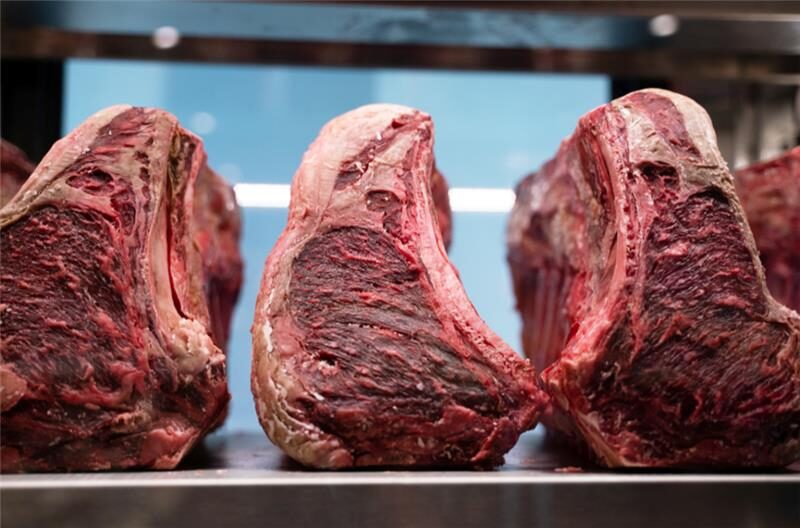In recent years, there has been a growing demand for transparency in how food is produced. For many Canadians, particularly in Ontario, meat choices are increasingly influenced by health, ethics, and sustainability. Terms like hormone-free meat Ontario, antibiotic-free beef, and natural butchery have moved from niche conversations to mainstream awareness.
But what do these terms really mean, and why do they matter? In this article, we will explore the benefits of healthy meats Canada, the principles behind clean eating Ontario, and how ethical farming plays a critical role in shaping the future of food.
Understanding Hormone- and Antibiotic-Free Meat
What Does Hormone-Free Mean?
Hormone-free meat refers to livestock raised without the use of artificial growth hormones. While some countries allow synthetic hormones in meat production, Canada has stricter regulations, especially for poultry and pork. However, beef producers in some regions may still use hormones to promote growth, which is why hormone-free meat Ontario is increasingly sought after by informed consumers.
What Does Antibiotic-Free Mean?
Antibiotic-free meat comes from animals raised without routine or unnecessary antibiotics. While antibiotics are sometimes necessary for animal health, overuse contributes to antibiotic resistance, a growing public health concern. Choosing antibiotic-free beef ensures consumers support farms that prioritize animal welfare and responsible veterinary practices.
Why Consumers Are Choosing Hormone- and Antibiotic-Free Options
Health Benefits for Consumers
- Reduced exposure to potential hormone residues
- Lower risk of antibiotic-resistant bacteria
- Cleaner, more natural flavour profiles
Ethical and Environmental Reasons
- Animal Welfare: Farms focusing on natural growth cycles allow animals to thrive without chemical intervention.
- Sustainability: Antibiotic overuse can pollute water systems and harm ecosystems.
- Transparency: Choosing hormone- and antibiotic-free meat supports ethical farming practices that prioritize consumer trust.
The Role of Natural Butchery
Natural butchery emphasizes traditional, respectful methods of processing animals. It values quality, sustainability, and minimizing waste. Butchers who adopt these practices often partner directly with farms that provide hormone- and antibiotic-free meats.
Explore more about natural butchery at Heritage Butchery.
Comparing Conventional and Hormone-/Antibiotic-Free Meat
The differences between conventional meat and hormone-/antibiotic-free options highlight why more Canadians are making the switch.
Feature | Conventional Meat | Hormone- and Antibiotic-Free Meat |
Animal Growth | Enhanced with hormones | Natural growth cycles |
Antibiotic Use | Routine prevention & growth promotion | Only when medically necessary |
Consumer Health Risks | Potential hormone residues, resistance | Reduced risk, cleaner product |
Environmental Impact | Higher due to runoff and waste | Lower, more sustainable |
Taste & Quality | Consistent but less nuanced | Richer, natural flavours |
Hormone-Free Meat Ontario: A Local Perspective
Ontario consumers are increasingly aware of where their food comes from. Farmers across the province are adopting hormone-free practices to meet demand for healthy meats Canada. By supporting local suppliers, consumers not only enjoy better quality meat but also strengthen community food systems.
Clean Eating in Ontario and Beyond
The clean eating Ontario movement is closely tied to the demand for natural, minimally processed meats. Choosing hormone- and antibiotic-free cuts aligns with clean eating principles:
- Whole, unprocessed foods
- Transparency in sourcing
- Seasonal and regional availability
Ethical Farming and Its Importance
Ethical farming goes beyond eliminating hormones and antibiotics. It includes:
- Providing animals with open space and natural diets
- Practicing soil and water conservation
- Offering fair wages and safe conditions for farm workers
When consumers opt for antibiotic-free beef or hormone-free meat Ontario, they are investing in a system that prioritizes both human and environmental health.
How to Identify Hormone- and Antibiotic-Free Meat
Labels to Look For
- Certified Organic
- “Raised Without Antibiotics”
- “Hormone-Free” (especially for beef)
Ask Your Butcher
Butchers specializing in natural butchery often have direct relationships with local farms and can provide transparency about sourcing.
Challenges in Accessing Hormone- and Antibiotic-Free Meat
While demand is increasing, access can be limited. Challenges include:
- Higher Costs: Natural practices require more resources and time.
- Distribution: Smaller farms may struggle with scaling supply chains.
- Consumer Awareness: Not all buyers understand the importance of these practices.
Education and consumer demand remain key to overcoming these barriers.
The Future of Healthy Meats in Canada
As awareness grows, the Canadian meat industry is evolving. Anticipated developments include:
- Wider availability of hormone-free meat Ontario in mainstream markets
- Growth of direct-to-consumer farm sales
- Stronger policies supporting ethical farming practices
These changes will make it easier for Canadians to embrace clean eating Ontario lifestyles.
Conclusion
Choosing hormone-free meat Ontario and antibiotic-free beef is about more than health—it is about supporting ethical farming, encouraging natural butchery, and aligning with the growing movement of clean eating Ontario.
By prioritizing healthy meats Canada, consumers can make informed decisions that benefit not only themselves but also their communities and the environment. The future of food lies in transparency, sustainability, and respect for both people and animals.
Call to Action:
If you want to deepen your understanding of where your food comes from, start by asking your local butcher or farmer about their sourcing practices. Exploring trusted sources such as Heritage Butchery can help you connect with Ontario farms that value transparency, sustainability, and ethical practices. Supporting regional producers is a simple way to strengthen local food systems while enjoying quality meat.
Frequently Asked Questions (FAQ)
Is hormone-free meat healthier?
Yes, hormone-free meat reduces exposure to artificial growth hormones and supports natural animal development, contributing to a cleaner, healthier product.
Why should I choose antibiotic-free beef?
Antibiotic-free beef helps lower the risk of antibiotic resistance and supports responsible, ethical farming practices.
Does Canada allow hormones in meat?
Hormones are not permitted in poultry or pork in Canada, but some beef production still allows them. This makes hormone-free beef an important consumer choice.
Is hormone- and antibiotic-free meat more expensive?
Yes, but the higher cost reflects the resources needed for ethical and sustainable farming. Many consumers see it as an investment in health and food quality.
Where can I buy hormone- and antibiotic-free meat in Ontario?
You can find options at local farmers’ markets, specialty butcher shops, and businesses like Heritage Butchery, which prioritize natural and ethical sourcing.




